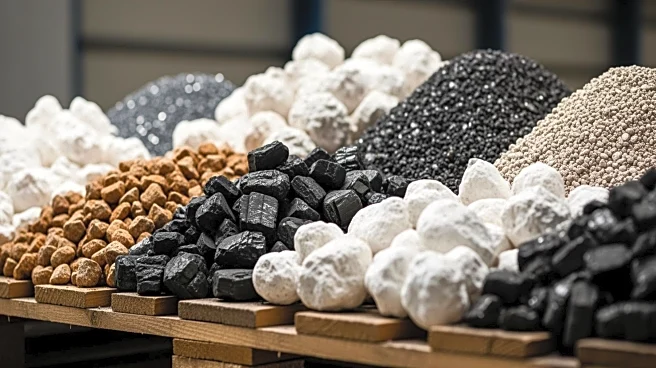What's Happening?
Export restrictions on industrial raw materials have become increasingly popular among developing and emerging economies, with a fivefold increase in such policies between 2009 and 2023. These restrictions aim
to promote local processing industries and economic development by limiting the export of raw materials like nickel, cobalt, and rare earths. Indonesia, for example, imposed a ban on the export of raw nickel and bauxite in 2014 to stimulate domestic mineral processing and manufacturing sectors. While the policy led to a significant increase in the export value of processed nickel products, the same success was not observed for bauxite, as previous buyers switched to alternative suppliers.
Why It's Important?
The rise in export restrictions has significant implications for global supply chains, particularly for advanced economies that rely on these raw materials for high-value production processes. The effectiveness of such policies in promoting local economic development is mixed, with successful outcomes dependent on the development of domestic processing capacity. The Indonesian case highlights the potential for increased investment in local industries, but also the risks of foregone export revenue and job losses if processing capacity is not adequately developed. These policies can also lead to unintended environmental consequences, such as increased coal production to support energy-intensive processing activities.
What's Next?
Countries considering export restrictions must carefully evaluate commodity-specific factors, such as domestic processing expertise and capacity, the response of international markets, and the potential for attracting foreign investment. Policymakers need to ensure that restrictions are accompanied by swift increases in processing capacity to avoid negative economic impacts. As domestic industries develop further, there may be opportunities for downstream industries to contribute to economic growth, but this requires competitive pricing and production capabilities.
Beyond the Headlines
The environmental impact of increased coal production and burning, as a side effect of export restrictions, poses challenges for countries aiming to produce inputs for renewable energy. This highlights the need for sustainable practices in resource extraction and processing. Additionally, the mixed outcomes of export restrictions underscore the importance of strategic planning and investment in local industries to achieve desired economic and employment goals.









